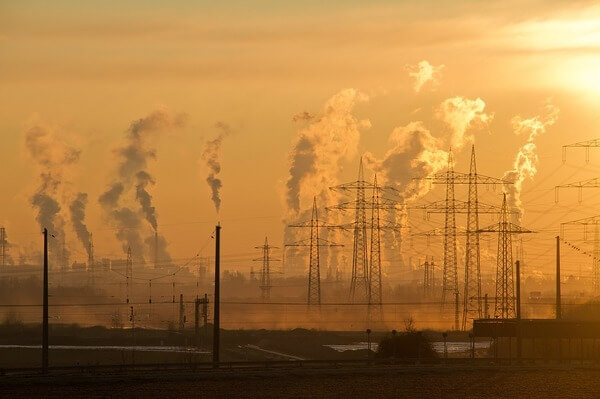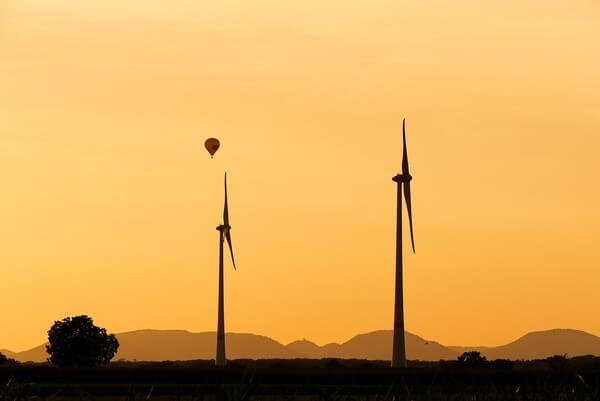News Release from windfair.net
Wind Industry Profile of
G20 Countries: Struggle With Climate Protection Targets
The next G20 summit will take place in Argentina's capital Buenos Aires at the end of November. In line with this, the International Climate Transparency Initiative has now published a new edition of its annual study 'Brown to Green Report 2018'. The study examines the question of how the G20 countries are achieving their climate protection targets - and this year again, the study comes up with devastating results.
The G20 countries are still not making fast enough progress in implementing the Paris Climate Agreement. On the one hand, this is due to excessively weak climate protection targets that the individual states have imposed on themselves. Among the countries with the lowest ambitions to date are Russia, Saudi Arabia and Turkey. If their climate protection targets were taken as a benchmark, the earth would heat up by four to five degrees by 2050. The actual goal of the agreement, on the other hand, is to keep the temperature rise at 1.5 to 2 degrees at best.
On the other hand, not enough is being done in the individual countries to actually achieve the targets. Germany is just one prominent example. Here the targets for 2020 were recently capped and postponed to 2022. This method is apparently also common practice in other countries. As a result, emissions rose again last year. There is no consistent implementation of the energy system transformation through sector coupling. "No G20 government is really getting a grip on these sectors – especially Australia, the United States, Russia and Indonesia, who are all lagging behind. But some countries are already moving ahead, like the United Kingdom or France with their decision to quickly phase out coal and fossil fuel-based cars,” explains Jiang Kejun of the Chinese Energy Research Institute, one of the co-authors of the study.

For the first time in a decade, CO2 emissions increased last year (Image: Pixabay)
"So far, Germany has done far too little to achieve its climate targets," says Jan Burck of Germanwatch, who also contributed to the study. "The report underlines the major weak points are traffic, the high CO2 emissions in electricity production and in the building sector of older houses. Germany scores the second-worst grade of "weak" in each case. Above all, we need an actual traffic shift towards traffic avoidance, e-mobility and significantly more buses, trains and bicycles. In addition, a socially acceptable exit from coal by around 2030 is unavoidable."
After all, Germany can score some points when it comes to the use of renewable energies. In 2017, their share of the electricity mix was 34 percent, while the G20 average was only 24 percent. "However, we owe these figures to good expansion figures from earlier years. The recent development in renewable energies is a cause for great concern. For example, the expansion of wind energy is collapsing - with no prospect of improvement by 2020," warns Prof. Dr. Niklas Höhne of the NewClimate Institute, another author of the study.
Here in particular, other countries still have to catch up enormously, as the examples of Saudi Arabia, Australia and Japan show, where more than 90 percent of energy consumption is still covered by fossil fuels. Meanwhile, South Africa, also a country with traditionally large amounts of coal-fired power generation, is making good progress. After a change of government, old expansion programmes for renewables will be relaunched there, but the country has already lost valuable years for the energy transition.

Germany is still at the top of the renewables league, but the lack of a coal phase-out is immediately destroying the successes (Image: Pixabay)
In terms of the overall energy mix, the G20 are still much more brown than green, as Germanwatch states. The countries with the highest dependency on coal also have the greatest difficulty in making rapid progress in reducing its use to generate electricity - even if initial efforts are evident.
Germany could also play a key role here, because "Germany with its Coal Commission is currently being closely monitored internationally: An ambitious and socially acceptable phase-out could set an important signal for other G20 countries," Burck said.
- Author:
- Katrin Radtke
- Email:
- press@windfair.net
- Keywords:
- climate change, Paris Climate Agreement, Germany, G20, summit, action, sector coupling, renewable energy, report


























